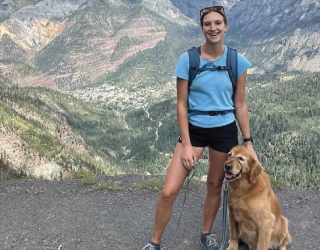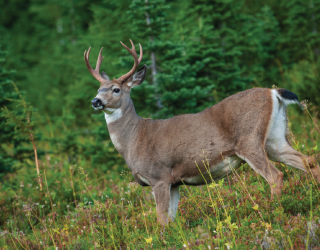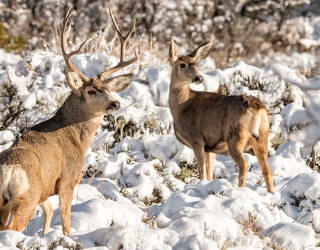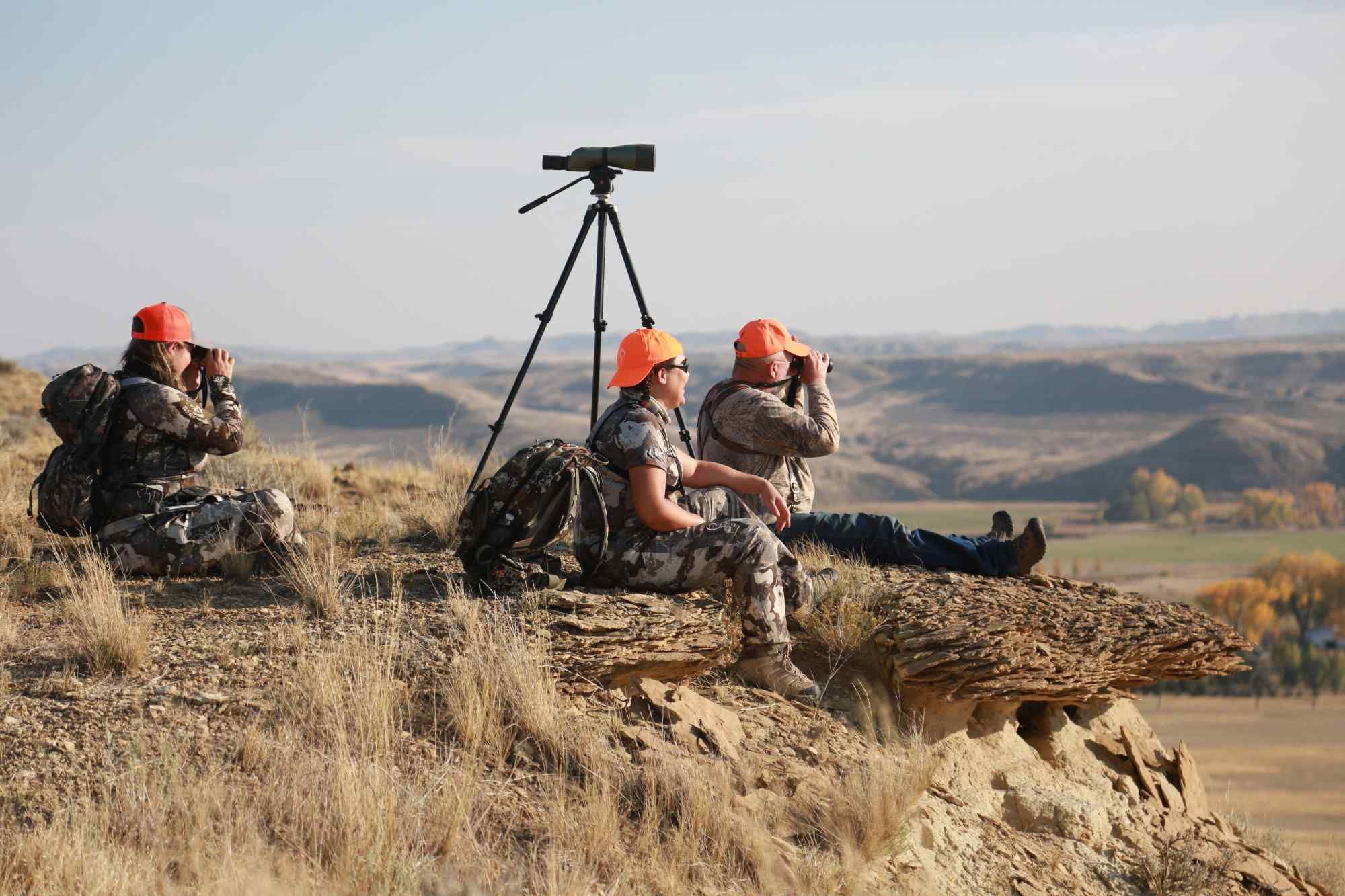
A Slow Squeeze to Pulling the Trigger on Hunting
A-hunting we will go, a-hunting we will go…
Growing up, I’d chant this popular folk song any time I set out on an adventure. Back then, it made me feel anything was possible in the woods with my dog, a pack of fruit snacks and a dried, new-found walking stick.
Now in my mid-30s, I realize the irony. The tune makes hunting sound like… well, a walk in the woods. Slip on those boots, buckle up your pack and you’re off to ‘catch’ a critter. Right?
For me, it has not been that simple. Even though I grew up on woodsy acreage in Minnesota, work at the parent company for Federal, have coworkers that live and breathe hunting and date an avid outdoorsman, my route to hunting has been a twisted journey with a learning curve more voluptuous than your longbow.
And I’m not alone!
Barriers – mental, physical, financial, or all three – are enough to easily block a person from trying a new hobby. When seeking a fun way to spend spare time, challenges can often redirect a person down a path of dabbling in something more attainable, or – depending on your barrier – more realistic.
A person born into a hunting family can’t relate. A seasoned hunter’s resume likely includes education from their parents or grandparents, hunter safety as a pre-teen, taking first shots as a youth and celebrating a successful harvest surrounded by family.
If that was your experience, you might not realize the challenges a wide-eyed, mid-life novice hunter faces. There are those who don’t know the basics of gun ownership and safety. Others don’t own a gun, didn’t grow up with hunting or don’t have access to land, lack a mentor. Many don’t have the gear, don’t know what gear they need or can’t afford the gear. Finally, there’s a health, strength and fitness element. Hunting is much, much easier if you’re strong, agile and in good physical shape.
Some people face all these barriers. Some face more. Add in being a minority and there you have it: a very challenging, work-intensive obstacle course set for something you’re not sure you’ll even like. It’s discouraging, overwhelming and easiest to opt out – especially if you encounter a negative experience early on.
My largest barrier is my upbringing. Despite squeaking out “Heigh-ho, the derry-o” among the whitetail haven known as my back yard, the closest I ever got to hunting was using binoculars to identify birds (and tracking them in my spiralbound Mead), rescuing an injured wild bunny (and nursing it back to health), shooting metal cans with a .22 (and fighting my brothers for my turn) and climbing up to the tree house dad built us (which, in hindsight, would have been a perfect deer stand).
Fact of the matter is, hunting wasn’t even considered. Our family enjoyed seeing deer in the yard. Animals were cared for, respected, loved and appreciated. Not hunted.
And I’m not alone!
I met a man in his mid-30s at the archery range who went on his first hunt last year. His eyes lit up as he explained he’d unmistakably found a new passion. Great that he found something he loved… why the wait, right? He grew up in a similar environment to mine. Here’s the unexpected twist: he is so fired up about his new discovery that his dad has expressed interest and wants to get in on the new hobby… in his 70s!
That man broke down his barrier, but acknowledged it was an adjustment of the mindset. Take a second to think about how many things you do because of how you were raised. From spending habits to steak seasoning, from religion to an activity like hunting – a quick switch on something you’ve known from the start isn’t all that easy to navigate.
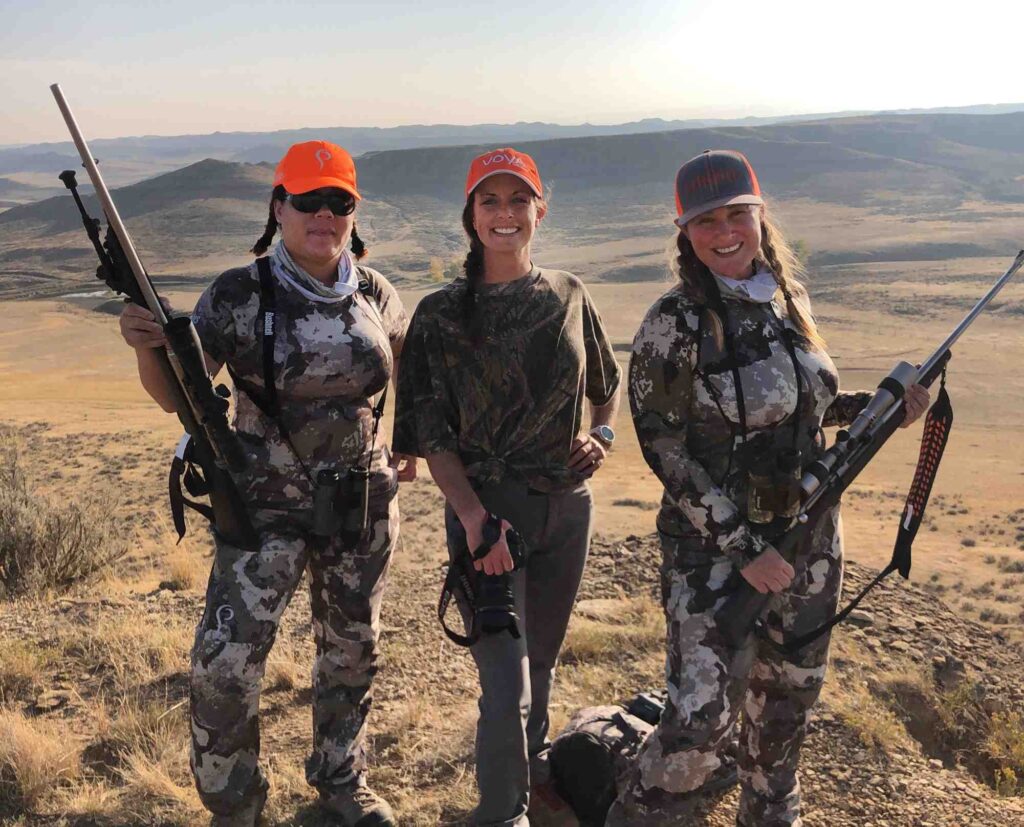
So when my employer and Federal Ammunition presented me with the incredible opportunity of attending the Wyoming Women’s Antelope Hunt last fall, the internal conflict started boiling. This event, focused on first-time female hunters, would provide education, access and opportunity all in a non-threatening environment designed to foster female hunting and shooting sports. I would enjoy travelling to Wyoming and socializing with teammates. Time spent outdoors is never wasted, and I would love a chance to sight in a rifle, shoot clays or try anything new.
The answer should have been a resounding “Yes!” but my moral compass presented resistance. After a strong internal debate, the initial answer was “no.” For me, being ready to hunt is much, much deeper than capability, equipment, aim or bravery. Hunting gets to the core of what was instilled in me at a young age: Animals are beautiful. I simply wasn’t ready to hunt, and while I have big respect for hunting, I know there’s a colossal gulch separating respect for hunting and having the guts to squeeze the trigger. Besides, I generally choose getaways with high probability of warmth, some solid adventure and a touch of extravagance.
But my “no” didn’t fly. I wanted to stay open to adding hunting to my life. I wanted to learn more about it and inch toward it, even if a sloth could beat me to it.
After a good bit of reluctance, I committed to tagging along to take photos and write about the experience rather than hunt. Going on the hunt without the pressure of harvesting was exactly what I needed: an opportunity to shadow another first-time, female hunter. Walk beside her, experience the hunt and witness firsthand how she felt about harvesting. And, instead of shooting an animal, I would shoot photos of someone else shooting an animal. Comfortable territory with a slight edge.
I went along and learned a lot about hunting, safety and antelope in general. As for the harvest, I knew I’d get emotional but was surprised to see so much emotion from others.
Our group had good and bad moments. I witnessed a missed shot and the frustration and disappointment that accompanied it. I heard a guide admit he made several mistakes and needed a break to regroup. I witnessed the adrenaline-induced shakes and fumbling nervousness in the moments leading up to a shot. There was nervous laughter as the guide drove his truck diagonally over a berm we could have easily rolled down. We had a very deep conversation as the sun set on the first day of the hunt. We took turns admitting we felt exhausted. I witnessed a successful shot and the resulting joy and appreciation. I heard detailed descriptions of how it felt to see a living animal through a scope in comparison to a measly paper target.
Emotions ran high no matter what was happening. There was so much laughter. So much seriousness. So many raw, candid, freeing moments all packed into two days with people I barely knew at the start but spoke to like family by the end.
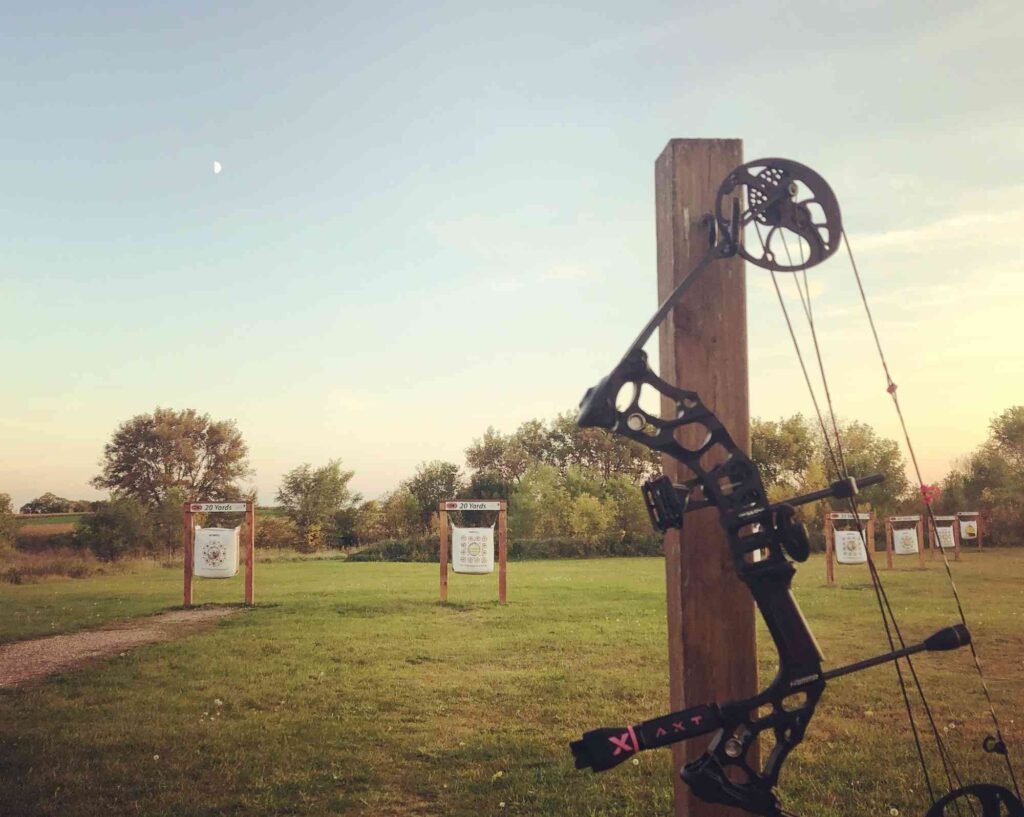
So where does my hunting story go from here?
Well, the weekend after the trip, I took advantage of Minnesota’s apprentice hunter program and bought an archery deer tag. I swapped the field tip arrows for broadheads and trekked to the deer stand with my boyfriend. We’ve been out a few weekends since – and, if I’m being honest – I feel a twinge of relief when darkness falls before a deer comes in close quarters, as I’m not completely confident I’ll be ready to draw my bow when it’s time.
In the meantime, I focus on the sun setting, birds chirping, the leaves blowing and squirrels tricking me into thinking there’s something huge nearby. Simply put, I love being out there and – like many other things in life – I don’t need to know what comes next. And, I’ve concluded, you don’t truly know how it feels until it’s your turn.
